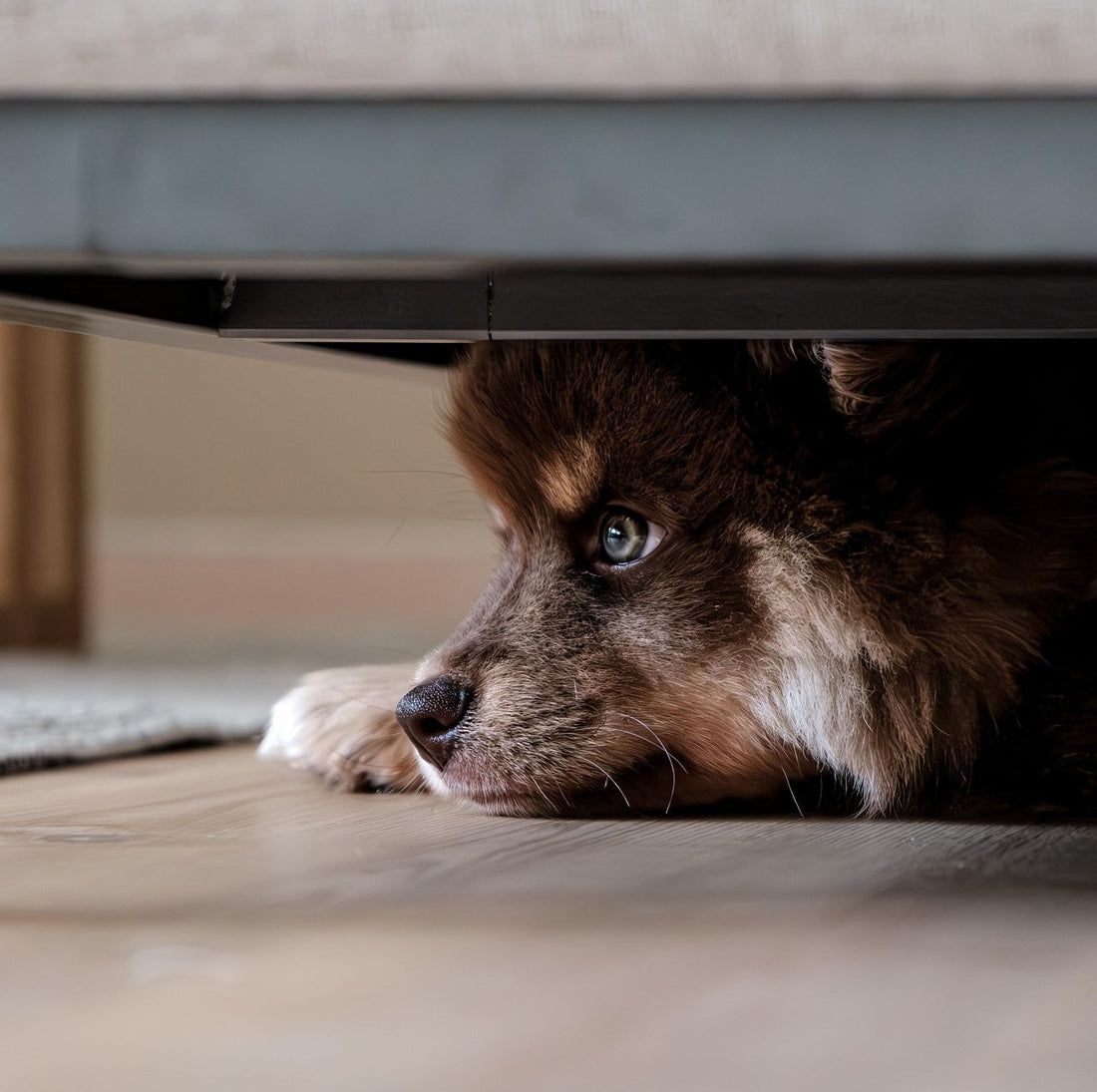
The Anxious Brain: How Chronic Stress Changes Your Dog’s Behavior
Share
Stress isn't just in our heads—it’s in the brain’s wiring. In dogs, chronic stress gradually rewires neural pathways, shifting behavior, mood, and learning. But with early awareness and intentional support, you can help your pup reclaim calmness and clarity.
What Science Reveals
Chronic Stress Prompts Lasting Behavior Patterns
In shelter dogs, exposure to unpredictable noise or confinement raises stress hormones like cortisol—and triggers behavioral changes that can linger even after removal of the stressor. Elevated anxiety, aggression, or withdrawal may persist long-term.
Read the study
Emotion Contagion: Dogs Absorb Human Stress
Dogs can mirror their owners’ emotional states. Studies show that dogs exposed to stress-related human odors exhibit more pessimistic behavior and altered learning performance—demonstrating "emotional contagion" at work.
Read the study
Chronic Cortisol Alters Brain Health
Constantly elevated cortisol not only disrupts behavior—it damages brain areas responsible for decision-making and memory. The result? Heightened anxiety, reduced focus, and poorer cognitive performance.
Read the study
Structural Changes in Canine Stress Response
Dogs undergoing persistent social or spatial restriction display stress-driven behaviors—backup by postural changes, excessive grooming, repetitive behaviors, and even self-directed destructive habits. These behaviors signal a disrupted brain-body stress feedback loop.
Read the study
How Chronic Stress Impacts the Dog Brain
Chronic stress doesn’t just affect your dog’s mood — it reshapes their brain, altering how they learn, respond, and relate to the world around them.
| CHRONIC STRESS EFFECT | BEHAVIORAL SIGNIFICANCE |
|---|---|
| Emotional Overwhelm | Dogs may appear reactive, nervous, or jumpy—often misread as 'bad behavior.' |
| Reduced Recall & Learning | Elevated cortisol can impair memory, making training harder to retain. |
| Persistent Anxiety or Fear | Stress sensitizes dogs to everyday triggers, reducing resilience over time. |
| Shifted Neuroplasticity |
The brain becomes more attuned to fear and survival—not curiosity or playful learning. |
Reset the Brain: A Calm-First Toolkit for Stress-Loaded Dogs
When chronic stress hijacks your dog’s behavior, the path back to balance begins with calm. This toolkit offers daily strategies grounded in behavioral science and neuroscience to help soothe, stabilize, and gently rewire your pup’s brain for a more relaxed, resilient life.
| TOOKIT ELEMENT | WHY IT HELPS | HOW TO USE IT |
|---|---|---|
| Consistent Routine | Predictability lowers stress and builds emotional security. | Set fixed times for meals, walks, rest, and enrichment to reduce cortisol spikes. |
| Scent-Based Calmers | Soothing smells (like lavender) can lower heart rate and promote calm behavior. | Use essential oil diffusers (safe-for-dogs) or calming chews with natural botanicals. |
| Low-Stimulus Spaces | Overstimulation keeps the stress-response system activated. | Create a quiet “zen den” with soft lighting, bedding, and chewable toys. |
| Puzzle Toys & Sniff Games | Encourages dopamine release, boosts problem-solving, and reduces anxious energy. | Offer 5–10 minutes daily of enrichment activities like treat-stuffed toys or nose work. |
| Touch & Massage | Physical connection reduces cortisol and promotes oxytocin—the bonding hormone. | Practice gentle petting or use dog-safe massage techniques around the neck, spine, or chest. |
| Training with Positive Reinforcement | Builds confidence and helps dogs reframe triggers through learning. | Focus on reward-based training with a clicker or soft voice—no scolding or correction. |
| Short Social Sessions | Controlled exposure helps rebuild positive associations without flooding. | Slowly reintroduce calm people or dog friends in low-pressure environments. |
| Calming Supplements | Natural compounds can support brain chemistry and regulate emotional response. | Look for L-theanine, GABA, or calming blends recommended by your vet or formulated for dogs. |
| Sleep Support | Deep rest is critical for brain repair and emotional balance. | Allow quiet, undisturbed sleep during the day and avoid late-night overstimulation. |
Why It Matters to Smarter Dog
Stress isn’t a behavior problem—it’s a brain in survival mode. At Smarter Dog, we center empathy and science first, helping dogs rebuild trust, calm, and curiosity—neuron by neuron.
Ready to Calm the Storm?
Sign up for our newsletter for expert resources, enrichment ideas, and early access to brain-calming products that help anxious dogs find their love of life again.
